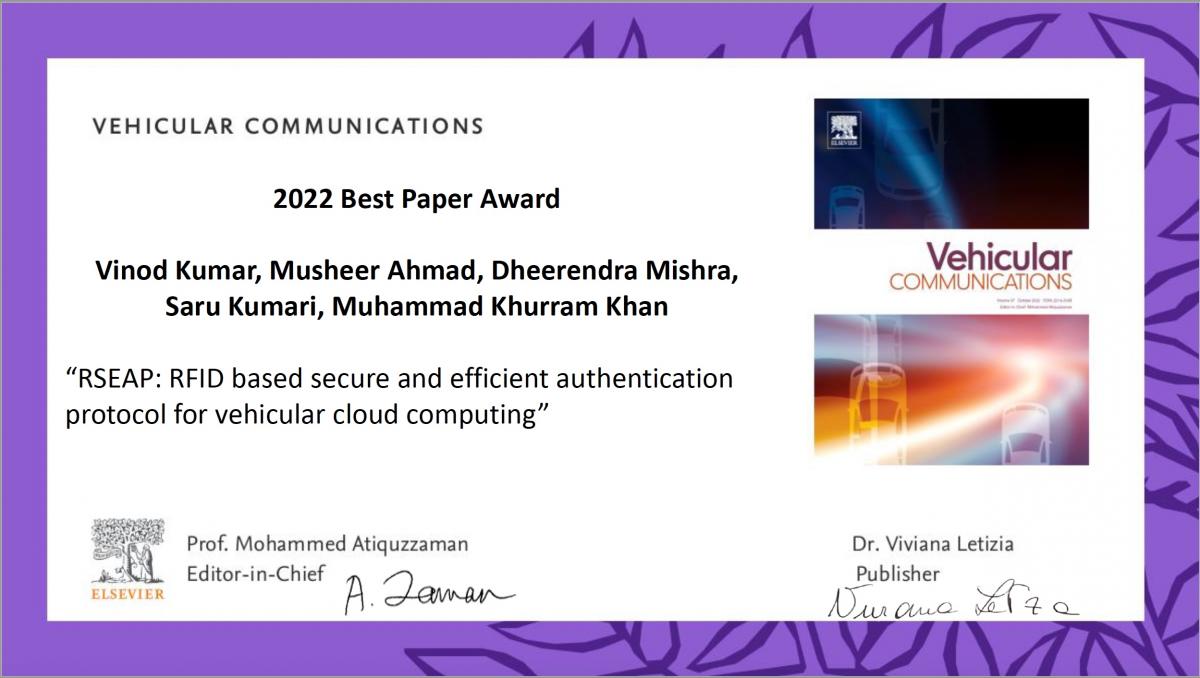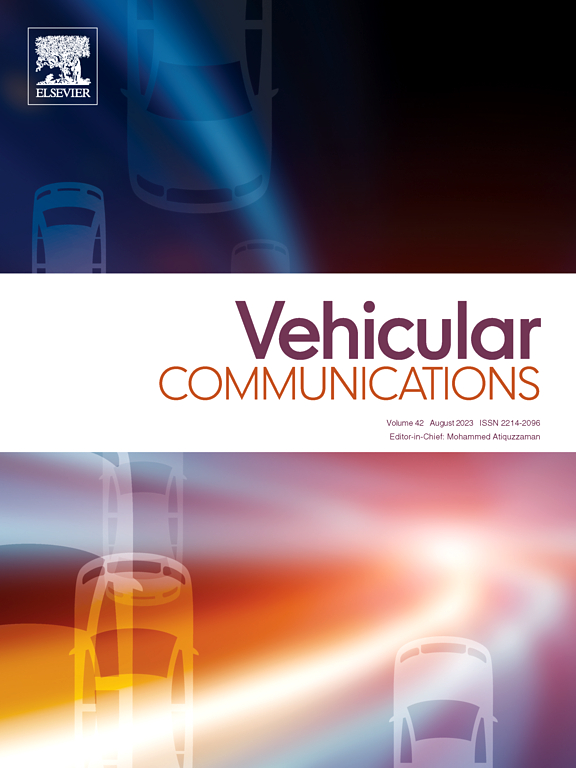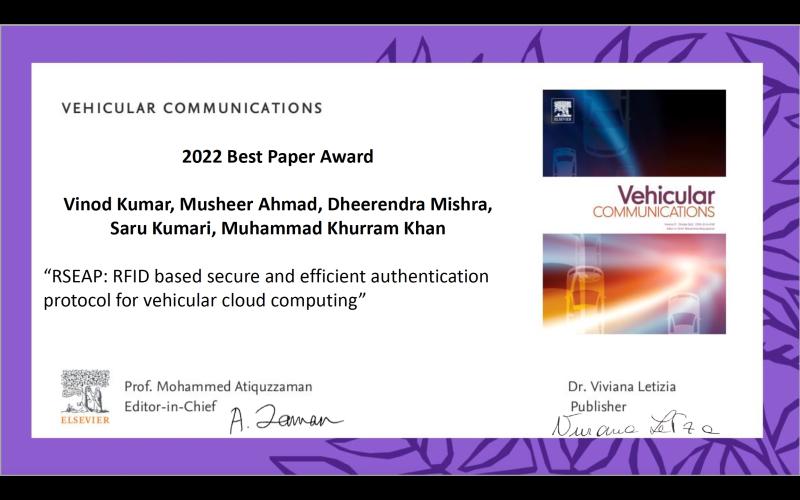KSU Collaborative Research on Vehicular Cybersecurity Wins ‘Best Paper Award’
KSU Collaborative Research on Vehicular Cybersecurity Wins ‘Best Paper Award’
A collaborative multi-institutional research team spearheaded by Prof. Muhammad Khurram Khan, a distinguished professor of cybersecurity from the Center of Excellence in Information Assurance at King Saud University, garnered the ‘Best Research Paper Award’ from a prestigious Q1 journal, “Vehicular Communications”. This reputed journal boasts a remarkable 6.7 impact factor and is published by the renowned publisher Elsevier. A certificate of recognition and a monetary prize is presented by the publisher to the authors as part of appreciation.

The award-winning paper titled “RSEAP: RFID based Secure and Efficient Authentication Protocol for Vehicular Cloud Computing” is one of the outcomes of the collaboration of Prof. Khan with his counterparts, who have been exploring automotive and vehicular cybersecurity for over a decade.

Vehicular cloud computing (VCC) has recently emerged as a new paradigm in smart mobility that offers the benefits of cloud infrastructure to utilize e-resources in vehicular communications. VCC presents real-time computational facilities to vehicles equipped with low-cost computing devices to optimize travel time, avoid accidents and traffic congestion, and provide cloud services on the move, etc.

As vehicles become more technologically advanced and interconnected with the cloud, they become susceptible to various cyberattacks and security breaches. In addition, maintaining the security of communication and the privacy of data are two major challenges in VCC. To achieve the goal of secure communication along with anonymity, this groundbreaking paper proposes a novel and applied elliptic curve cryptography (ECC)-based authentication framework for VCC. This work sets the foundation to develop secure authentication in vehicular networks and opens new horizons to explore and develop secure and privacy-preserving VCC communication systems for connected and autonomous vehicles (CAVs), which have a pivotal role in the smart mobility transformation.

It is worth mentioning that Prof. Khan’s research group has numerous outstanding contributions to the automotive and vehicular cybersecurity domain, which have churned out several US patents and publications in prestigious and flagship venues, including IEEE Transactions on Information Forensics and Security, IEEE Transactions on Vehicular Technology, IEEE Transactions on Intelligent Vehicles, IEEE Transactions on Intelligent Transportation Systems, IEEE IoT Journal, IEEE Vehicular Technology Magazine, IEEE Communications Magazine, IEEE Transactions on Network Science and Engineering, and IEEE Network, among others. Prof. Khan has also delivered several keynotes and invited speeches at a number of international conferences on the outcome of his research in automotive cybersecurity. His research work into automotive cybersecurity has been funded by the National Science Foundation (NSFC) of China, and the Research and Development Office of the Ministry of Education, Saudi Arabia.

